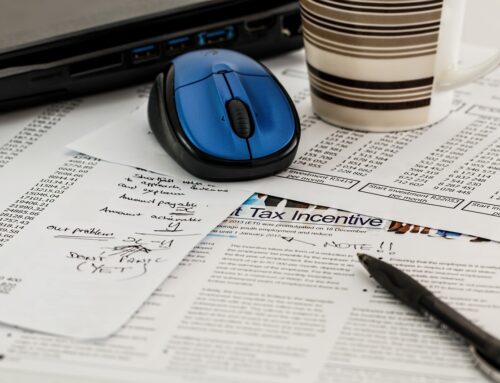
Verifying Property Ownership in the Philippines
Investing in property in the Philippines can open up an exciting chapter—whether you’re building your dream lifestyle or exploring a smart rental opportunity. But before you commit to anything, one step is absolutely essential: verifying property ownership.
This simple yet critical process protects you from scams, ensures you’re dealing with the legal owner, and gives you peace of mind. Let’s walk through how to do it right.
Title Deed vs. Tax Declaration: What You Really Need to Know
In the Philippines, two common documents pop up during property transactions: the title deed and the tax declaration. While both relate to a property, they serve very different purposes—and understanding the difference can save you from major headaches.
The Real Deal: The Title Deed
This is your gold standard. Officially called the Transfer Certificate of Title (TCT) for land or Condominium Certificate of Title (CCT) for condo units, this document proves legal ownership. Issued by the Land Registration Authority (LRA), it includes all the key details:
-
Owner’s full name
-
Property location and size
-
Previous transfers or ownership history
-
Any legal claims, restrictions, or mortgages
It’s recognized by the courts and is the only real proof of ownership.
What About the Tax Declaration?
This document is mainly for taxation purposes. It lists the property’s assessed value and identifies who’s responsible for paying the real estate tax. But here’s the catch: just because someone is paying the taxes doesn’t mean they legally own the property.
Anyone who claims or occupies the land can register it for tax purposes—even if they’re not the rightful owner.
Bottom line? A tax declaration is a clue, not a confirmation.
Why It Matters
If someone tries to sell you a property using only a tax declaration, be cautious. It’s not uncommon for scammers to use this as “proof” of ownership. Protect yourself by demanding the real deal—the title deed—and verifying it through the right channels.
The Right Way to Verify Property Ownership
Here’s a step-by-step guide to verifying property ownership before making any purchase:
1. Work with a Real Estate Lawyer
Start by hiring a lawyer who specializes in property law in the Philippines. They’ll guide you through the process, spot red flags, and make sure all the documents are legit.
2. Get a Certified True Copy of the Title
Ask for a certified true copy of the title from the Registry of Deeds where the property is located. This official version confirms that the title is recorded and gives you the latest information on the property.
3. Do a Title Search
Your lawyer can run a full title search through the Registry. This shows:
-
Current and past owners
-
Any liens, mortgages, or unpaid loans
-
Pending legal disputes or restrictions
4. Cross-Check All the Details
Compare the certified true copy of the title with the Registry’s database. Double-check that everything matches: the name of the owner, the property’s location and size, and any listed encumbrances.
5. Investigate Any Issues
If anything doesn’t line up, don’t ignore it. Your lawyer can help you dig deeper and figure out if the issue can be resolved—or if it’s a deal-breaker.
Additional Tips for a Safe Transaction
Watch Out for Forgeries: Sadly, forged title deeds do exist. A good lawyer can verify the title’s authenticity through checks with the Land Registration Authority (LRA).
Understand Encumbrances: If the title shows any legal claims, restrictions, or debts, your lawyer will explain what they mean and how to address them before moving forward.
Why Verification Matters
It might feel like extra work, but verification is a smart move. It helps you:
-
Avoid fraudulent transactions
-
Confirm clear and legal ownership
-
Make a confident, stress-free investment
A little diligence upfront can save you from big problems later.
Beyond Verification: Extra Steps for Extra Peace of Mind
Checking the title is just the beginning. Here are more things to look into before buying:
1. Inspect the Property in Person:
Photos can be misleading. A physical visit lets you check for structural issues, verify boundaries, and catch anything unusual.
2. Research Zoning Laws:
Make sure the property’s use matches your goals. Some zones limit construction, business activities, or future development.
3. Get Local Clearances:
Check that the property has the right permits—like building, occupancy, and barangay clearances. These documents confirm that everything’s legally in place.
4. Review HOA Rules (For Condos):
If you’re buying a condo, ask for the Homeowners Association (HOA) rules. You’ll want to know about monthly dues, visitor policies, renovation limits, and more.
Need Help? These Resources Can Guide You
Verifying property ownership doesn’t have to feel overwhelming. Here are some reliable places to start:
Land Registration Authority (LRA)
https://lra.gov.ph
☎️ (02) 892-9446 (Metro Manila)
Your go-to for official land records and certified title copies.
Department of Justice (DOJ)
https://www.doj.gov.ph
☎️ (02) 852-7748
Use the DOJ’s lawyer directory to find real estate attorneys across the Philippines.
Law Society of the Philippines (LSP)
https://www.lawsociety.org.uk/en/topics/international/doing-legal-business-in-the-philippines
Their legal directory can help you connect with qualified lawyers for property-related advice.
Pro Tip: Always confirm your lawyer is licensed and in good standing. A few minutes of checking can go a long way in protecting your interests.
Conclusion: Invest Wisely, Invest Securely
Owning property in the Philippines offers lifestyle freedom, rental income, and long-term value—but only if it’s done right. By understanding the legal side of ownership, verifying the title, and leaning on expert guidance, you can move forward with clarity and confidence.
Take your time, do your research, and don’t rush the process. With the right support and a careful approach, you can turn your dream of owning property in the Philippines into a smart, secure reality.

















